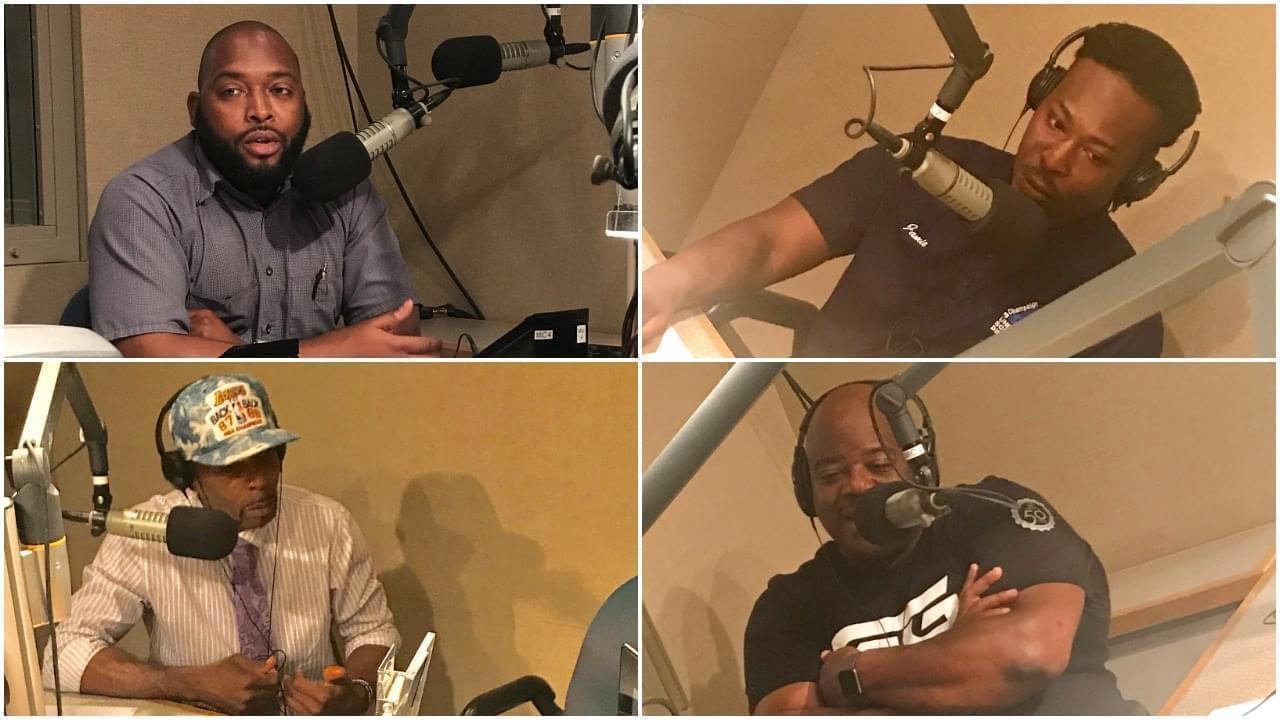Equity In The Legal Cannabis Industry; Community Members Reflect, 10 Years After Police Shooting; Transient Global Amnesia

(AP Photo/Marina Riker, File)
The war on drugs has affected communities of color the most. Now, as Illinois gets ready for legal recreational marijuana, state officials say they want the new legal industry to be more equitable. Plus, ten years ago today, an unarmed black teenager in Champaign was shot and killed by a white police officer. We’ll hear community members talk with each other about how they’ve been dealing with that pain. And, we’ll talk with one Illinois man about a condition that temporarily erased his memory for a day with no lasting physical or mental effects.
The State's Equity Plan For Legal Cannabis
Adult recreational marijuana use will be legal in Illinois on January first. And when it comes to who can legally grow and sell marijuana, the state says they want to make the process more equitable by prioritizing applicants from communities that were disproportionately affected by the “war on drugs.”
The Illinois Department of Commerce & Economic Opportunity released a map earlier this month showing where those areas of the state are.
We spoke with Michael Negron, assistant director of the Illinois Department of Commerce and Economic Opportunity. We were also joined by Eli McVey, a data researcher at Colorado’s Marijuana Business Daily, and Jean Jane, a member of Equity First Alliance, a national network of organizers working toward racial equity and reparative justice in the cannabis industry.
"We have been meeting with a wide range of stakeholders to make sure we really understand what the needs are and that we are tailoring to them." -Michael Negron @IllinoisDCEO https://t.co/eAgeCAeBZf
— The 21st (@21stShow) October 9, 2019
Community Members Reflect, 10 Years After Police Shooting
In 2014, Michael Brown was shot and killed by a white police officer in Ferguson, Missouri. And the activism that came after that shooting and, unfortunately, the deaths of many others like Sandra Bland, Eric Garner, and Laquan MacDonald, has changed the national conversation about race and policing.
Many black residents in Champaign-Urbana also remember another name. Kiwane Carrington was 15-years old when, ten years ago today, he was shot and killed by a white Champaign police officer. The shooting happened after a neighbor suspected that Carrington was breaking into a home when in fact, he was trying to get into his aunt’s house where he had been living. Carrington was also unarmed.
If you don’t experience this issue personally, you might be used to just seeing these names in the news. But ten years later, the people who knew Kiwane are still dealing with the pain of losing him even as they advocate locally, for more accountability from police, and solutions to gun violence.
Today we step away from the mic and hear from several people who knew Kiwane Carrington. They came into the studio to talk with each other, and reflect on the years since he was killed.

Clockwise from top left: Jamar Brown, Jamie Gatson, William Patterson and Seon Williams came to the studio at WILL.
Jamar Brown worked for the City of Champaign when Kiwane died. He spoke with his uncle Seon Williams, a Champaign business owner who knew Kiwane and his family.
Jamie Gatson was only 15, the same age that Kiwane was. And in the ten years since then, he’s dealt with the loss of his friend in lots of ways including through music. Gatson speaks with his mentor, William Patterson who’s now an engineering lecturer at the University of Illinois.
"Whether you liked him or not, there were people who loved him and those individuals are still hurting, badly, 10 years later."
— The 21st (@21stShow) October 9, 2019
-Champaign business owner Seon Williams talking about the death of 15-year-old Kiwane Carrington.
Transient Global Amnesia
Many of us, no matter our age, will experience a lapse in memory at some point.
But imagine your memory completely rebooting itself every few minutes for an entire day. Suddenly, you’re unable to remember anything you’d done, up to just moments before. Not only that, but you don’t remember basic facts like who the president is, or where your family members live.
The next day, you’re fine, and your memory comes back, as if nothing had happened and with no lasting physical or mental impairments. This is what it’s like to have transient global amnesia, or TGA.
We spoke with Frank McAndrew, a psychology professor at Knox College in Galesburg who personally experienced transient global amnesia. He wrote about this for Psychology Today, and his story was mentioned in a recent New York Times column on the topic. We were also joined by Dr. Eugene Scharf, a neurologist at the Mayo Clinic in Rochester.
.@FTMcAndrew's memory was temporarily erased for a day with no lasting physical or mental effects. We're speaking with him and a neurologist (@strokenojoke) about what happened. https://t.co/NaPlxuwTuJ
— The 21st (@21stShow) October 9, 2019

